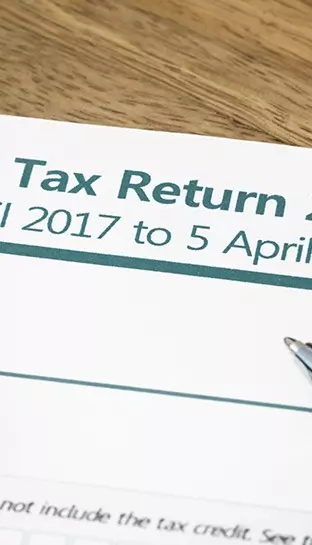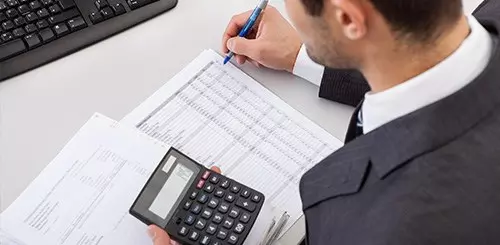TAX RETURNS Accountant
Wakefield, West Yorkshire
Do you require a tax returns accountant for Wakefield or West Yorkshire?
When running a sole proprietorship or partnership, you have to comply with HMRC requirements as you file your tax returns. For individuals who have various income sources, they must comply with the requirements of Self-Assessment Returns. We can facilitate the process by checking your form for any errors that need correction before you submit it. Further, we review your self-assessment tax return for any tax savings to reduce your liability.

Tax Returns Advice
If you have a problem with your cash flow, we can negotiate with HMRC on your behalf to agree upon a payment plan. Alternatively, we can assist you to come up with other ways of deferring your tax payments.
The most common reasons that a tax return may be required are as follows:
- You are self-employed or a partner in a partnership
- You have untaxed savings or investment income
- You have sold or given an asset away (such as a holiday home or some shares)
- You have large amounts of savings or investment income
- You have income from overseas
- You own land or property that is being let
- Your household receives Child Benefit and you have income in excess of £50,000
- You've lived or worked abroad or aren't domiciled in the UK
The staff at HM Revenue & Customs are not tasked to advise you on how to organise your affairs and minimise your tax. Therefore, if you want to make sure you are paying the right amount of tax, you should consult a professional. We enable you to concentrate on the core areas of your business by taking care of your self-assessment tax returns at a fixed and affordable price.
Do I need to do a Tax Return and what is the deadline?
It is difficult to know if you need to file a self-assessment tax return if you were or are self-employed. Another confusing part is figuring out the HMRC's tax deadlines. You can know your tax position by allowing our expert accountancy team to help:
1) Self-employment tax return
If you are self-employed and earned whatever amount of income during a tax year, you need to file a self-assessment tax return in April next year. It is irrelevant whether you ended your business; as long as you made some income during that relevant year from self-employment, HMRC requires you to pay your dues. If you still are confused about filing your tax return, the HMRC's online guide will help.
2) Remember, remember the 31st January
For the tax year which ended the previous year's April, the deadline for filing an online self-assessment falls on 31st January at midnight. For instance, for the year running from the 6th April 2016 to the 5th April 2017, your deadline for online self-assessment was on 31st January 2018.
3) It pays to be punctual
If you fail to file your returns on time and pay any tax you owe before the deadline, you will have to pay a £100 automatic fine. You should, therefore, observe the deadline for the sake of your finances.

Penalties for late tax returns
Other than a simple £100 fine, there are several other penalties for late tax returns depending on how late they are filed. Initially, if you only file the tax return a few days or a month or two late, regardless of whether or not you have outstanding tax payments, the £100 fine is all you have to worry about. Should you not file it within 3 months past the due date, you will begin to face a £10 penalty for every day past this point. This penalty goes up to a maximum of £900 over the course of the next 3 months.
If you still haven't paid it after 6 months past the due date, you will face an additional £300 penalty. If you do have outstanding unpaid taxes at this point, you may be charged for 5% of those taxes if that would amount to more than £300.
Should you not file your tax returns for a whole year past the due date, you will be charged another £300 on top of the other penalties and be charged another 5%, much like the previous penalty. In a worst-case scenario, if you still have particularly outstanding taxes you haven't paid at this point, you may be fined for up to 100% of the tax you owe.
Do I need an accountant to do my tax return?
Do you need an umbrella to walk in the rain? No, you don't really, but that doesn't mean they don't come in handy and might stop you from catching a cold. It's the same with hiring accountancy services. You can technically do all of the work yourself, but most people find it a miserable and stress-inducing process.
This also depends on the scale you are operating on. If you are a self-employed small business owner or just an employee and you don't have too many transactions to look over, then doing tax returns is far more manageable.
On the other hand, if you are someone with a myriad of complex and convoluted streams of revenue, filled to the brim with outgoings and incoming payments, then in all likelihood, you are already busy enough without the added work that comes with filing a self-assessment tax return.

Having good bookkeeping helps here, and so does having consumer-grade accounting software.
Indeed, if you are an especially meticulous person when it comes to keeping records of transactions and receipts anyway, then doing it yourself is entirely possible.
However, if the idea of spending hours agonizing over-complicated tax codes doesn't appeal to you, then consider sidestepping the problem entirely.
So consider us a comfortable taxi service you can use to avoid the torrential downpour that is the HMRC tax codes.
How can an accountant help?
When it comes to something as complex and often confusing as filing for tax returns, there is always going to be a lot to think about. Hiring one of our accountants based in Wakefield can eliminate those concerns you no doubt have. Here are just some of the benefits of hiring an accountant to do a tax return for you.
When filing for self-assessment tax returns, it is vital that all of the numbers are in order. Tax assist accountants are specialists in this, and we can ensure all calculations are as accurate as possible thanks to our specialized software and training.
One of the most daunting parts about self-assessment tax returns is the possibility of getting something wrong or missing a key detail and getting a dreaded letter from the HMRC.
While accountants are still human and capable of falling prey to basic human error, they are also the most adept at preventing those errors from occurring and mitigating them if they do occur.
By having an accountant handle your bookkeeping and tax returns, you will reduce the risk of a fine or penalty to a negligible chance.
Accountants are professionals at knowing when, where and how much money is moved at any time. Due to this, they also have all the information they need to make accurate calculations on exactly how much you need to pay the HMRC for your annual tax return.
Time is money. It is a simple truth and applies whether you are self-employed or work for a business. Naturally, time spent doing something like calculating tax returns is a waste of time that could be better spent elsewhere.
By employing our accountancy tax services, you won't even need to think about dealing with tax returns as our professional accountants will take care of it for you, leaving you free to pursue more fruitful endeavours.
People also Ask
Most UK employees utilise the PAYE system to pay all their taxes; thus, only some are required to provide a tax return. However, suppose that your tax affairs have become complicated over time due to specific circumstances; for example, you now have an additional source of untaxed income alongside your regular employment income, and this will typically mean you require a tax return.
You'll find that there is a minimum income amount, and the employee's age and filing status typically determine these.
According to recent data, the UK minimum single filing status for those under 65 in 2022 was around £10,613. Those aged 65 or older had a filing status of around £12,051. For those with an income below such a threshold, you'll find that you do not need to file for a tax return.
Unless you are incredibly confident or knowledgeable about tax returns, you may require the assistance of a professional accountant to complete the job.
Whilst there isn't a legal requirement to utilise the skills of an accountant, if you are unsure of how to perform a tax return, they can provide all the help you need.
Virtually anyone can appoint themselves as a paid tax return preparer; however, they must have an IRS PTIN (Preparer Tax Identification Number).
Many tax preparers offer a wide range of education, skills and expertise, so ensure you do plenty of research to ensure that you opt for the one most suitable to your requirements.
If you would like to find out more information about our tax returns accountant services in Wakefield, please give us a call on 01924 291 388 or send us an email through our contact form.
